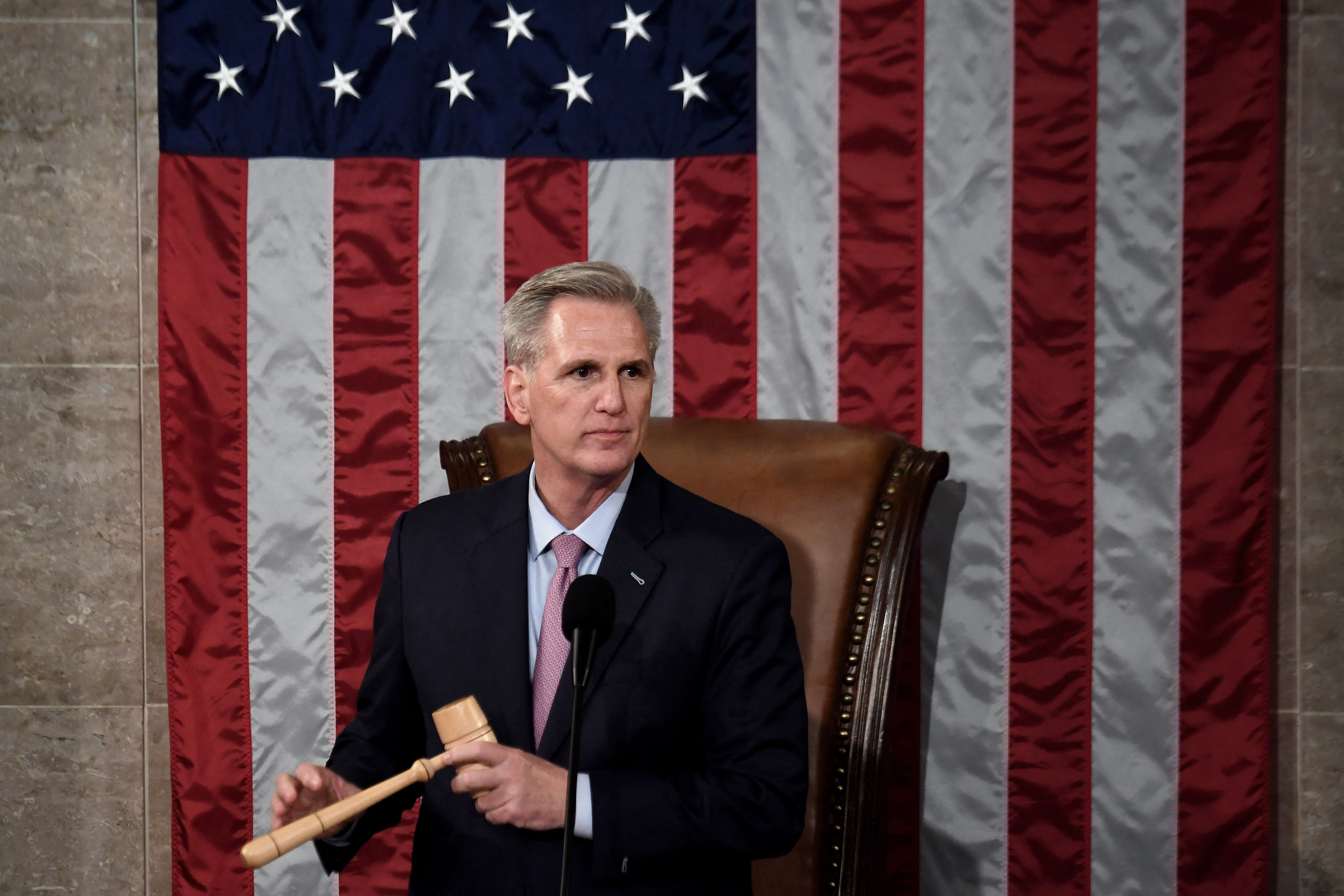Kevin McCarthy elected House speaker following raucous debate proceedings


A free daily email with the biggest news stories of the day – and the best features from TheWeek.com
You are now subscribed
Your newsletter sign-up was successful
Rep. Kevin McCarthy (R-Calif.) was elected speaker of the House of Representatives just past midnight on Saturday morning, finally garnering enough votes on the 15th ballot following a period of heated and at times physically charged in-fighting within the Republican Party.
The election process, which began this past Tuesday, marked the first time in a century that the majority party was unable to elect a speaker on the first ballot. While McCarthy had previously been seen as a shoo-in for the job, the GOP's underwhelming performance during the midterm elections cast a shadow over his ability to helm his side of the aisle.
Despite McCarthy always having a large majority of the Republican votes, a number of notable holdouts, including Rep. Matt Gaetz (R-Fla.) and Rep. Lauren Boebert (R-Colo.) had stifled the California representative's bid to claim the gavel. It seemed that McCarthy kept losing again, and again, and again, until he began to offer concessions during a series of behind-the-scenes negotiations with his opponents.
The Week
Escape your echo chamber. Get the facts behind the news, plus analysis from multiple perspectives.

Sign up for The Week's Free Newsletters
From our morning news briefing to a weekly Good News Newsletter, get the best of The Week delivered directly to your inbox.
From our morning news briefing to a weekly Good News Newsletter, get the best of The Week delivered directly to your inbox.
The New York Times reported that former President Donald Trump personally called a number of the holdouts following McCarthy's 14th loss. Whether this played a significant role in getting members to change their votes is unclear, though at least one member was seen brushing the phone away as it was handed to him.
During his first address following his election, McCarthy said, "Now the hard work begins," pledging to open investigations into President Biden and the Democratic Party.
The week-long debate, though, has cast doubt among some analysts over the ability of the GOP to effectively govern. At one point, the in-fighting between the party nearly got physical, with Rep. Mike Rogers (R-Ala.) seemingly having to be held back from attacking Gaetz after the latter's 14th vote against McCarthy.
A free daily email with the biggest news stories of the day – and the best features from TheWeek.com
Justin Klawans has worked as a staff writer at The Week since 2022. He began his career covering local news before joining Newsweek as a breaking news reporter, where he wrote about politics, national and global affairs, business, crime, sports, film, television and other news. Justin has also freelanced for outlets including Collider and United Press International.
-
 The Week Unwrapped: Do the Freemasons have too much sway in the police force?
The Week Unwrapped: Do the Freemasons have too much sway in the police force?Podcast Plus, what does the growing popularity of prediction markets mean for the future? And why are UK film and TV workers struggling?
-
 Properties of the week: pretty thatched cottages
Properties of the week: pretty thatched cottagesThe Week Recommends Featuring homes in West Sussex, Dorset and Suffolk
-
 The week’s best photos
The week’s best photosIn Pictures An explosive meal, a carnival of joy, and more
-
 Why are election experts taking Trump’s midterm threats seriously?
Why are election experts taking Trump’s midterm threats seriously?IN THE SPOTLIGHT As the president muses about polling place deployments and a centralized electoral system aimed at one-party control, lawmakers are taking this administration at its word
-
 NIH director Bhattacharya tapped as acting CDC head
NIH director Bhattacharya tapped as acting CDC headSpeed Read Jay Bhattacharya, a critic of the CDC’s Covid-19 response, will now lead the Centers for Disease Control and Prevention
-
 Witkoff and Kushner tackle Ukraine, Iran in Geneva
Witkoff and Kushner tackle Ukraine, Iran in GenevaSpeed Read Steve Witkoff and Jared Kushner held negotiations aimed at securing a nuclear deal with Iran and an end to Russia’s war in Ukraine
-
 Pentagon spokesperson forced out as DHS’s resigns
Pentagon spokesperson forced out as DHS’s resignsSpeed Read Senior military adviser Col. David Butler was fired by Pete Hegseth and Homeland Security spokesperson Tricia McLaughlin is resigning
-
 Judge orders Washington slavery exhibit restored
Judge orders Washington slavery exhibit restoredSpeed Read The Trump administration took down displays about slavery at the President’s House Site in Philadelphia
-
 Hyatt chair joins growing list of Epstein files losers
Hyatt chair joins growing list of Epstein files losersSpeed Read Thomas Pritzker stepped down as executive chair of the Hyatt Hotels Corporation over his ties with Jeffrey Epstein and Ghislaine Maxwell
-
 Judge blocks Hegseth from punishing Kelly over video
Judge blocks Hegseth from punishing Kelly over videoSpeed Read Defense Secretary Pete Hegseth pushed for the senator to be demoted over a video in which he reminds military officials they should refuse illegal orders
-
 Trump’s EPA kills legal basis for federal climate policy
Trump’s EPA kills legal basis for federal climate policySpeed Read The government’s authority to regulate several planet-warming pollutants has been repealed
